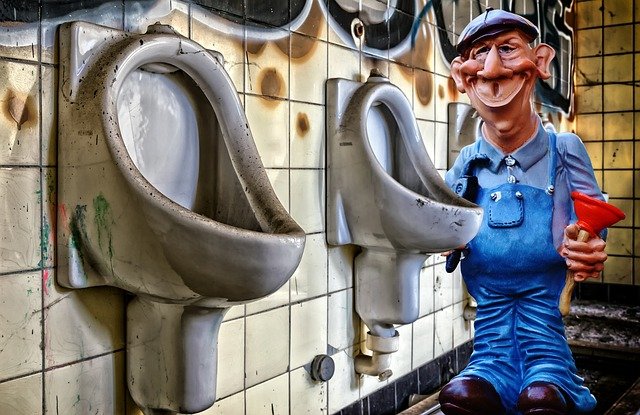
Every now and then, everyone pees. And that’s acceptable! Just avoid doing it too often, or you may wind up with some serious problems later on.
Peeing is quite important. Your kidneys remove extra water and waste from your blood through urination, which requires a location to go: your bladder.
Normally, it can contain 1.5 to 2 cups of urine, although that varies from person to person.
Now, if you’re like most people and can’t hold your pee for more than a few hours, you go when you need to go.
However, there are some people out there who try to “hold it in” for longer periods of time.
Maybe they’re trying to impress someone, or maybe they just don’t want to stop what they’re doing. But is this a good idea?
Let’s take a closer look at what can happen if you hold your pee for too long.
What Can Happen If You Hold Your Pee for Too Long?
When you delay urination, the urine that’s already in your bladder starts to become more concentrated. When the urine reaches a high enough level of concentration, it can cause urinary tract infections.
As you might have guessed, this is not good for your bladder or kidneys.
Unsurprisingly, your risk of contracting a UTI goes up with age, as well as if you’re female, have had more than one UTI in the past, are sexually active, or have a history of kidney stones.
If you’re in any of these groups and are looking to hold your pee for periods longer than three hours, it’s probably best for you to see your doctor first.
How long is too long to hold your pee?
The longer you go without urinating, the more likely you are to contract a UTI.
Although it’s difficult to say exactly how long is too long for everyone, in general, if you’re healthy and under the age of 50, holding it in for 8 hours or more is probably not worth the trouble.
So, if you’re ever in a situation where you really can’t go to the bathroom, try to at least urinate every 3 hours. This will help to keep your urine diluted and reduce your risk of contracting a UTI.
If you are having trouble going to the bathroom when you need to, there are some things you can do to help stimulate urination.
Drinking plenty of fluids, eating foods high in water content (like fruits and vegetables), and avoiding caffeine and alcohol can all help to encourage urination.
Additionally, you can try going for a walk or doing some light exercise. And lastly, if you’re really struggling, you can use over-the-counter products like Oxytrol to help you go to the bathroom when you need to.
Bottom line: try not to hold your pee for too long, especially if you’re at risk for UTIs. Urinating every 3 hours will help keep your urine diluted and reduce your risk of infection.
If you’re having trouble going when you need to, try drinking more fluids and exercising.
Additionally, you can use over-the-counter products like Oxytrol to help stimulate urination.
What is the maximum capacity of your bladder before it burst?
There is no definitive answer to this question. It largely depends on a person’s individual physiology and hydration levels.
However, in general, most people’s bladders can hold between 1.5 and 2 cups of urine before they need to go to the bathroom.
Anyone who attempts to hold in more than this is at risk for developing a UTI.
The Mayo Clinic states that if you’re healthy and under the age of 50, it’s safe to hold your pee for 8 hours before going to the bathroom.
In contrast, pregnant women should try not to go over 3 hours without using the restroom because their babies are nourished through them, and they have a greater tendency towards UTIs.
If you find that you frequently have to go the bathroom, but can’t make it to a toilet in time, there are some things you can do to help lengthen the amount of time between trips.
Exercising and drinking plenty of fluids (especially water) can help to encourage urination. Additionally, avoiding caffeine and alcohol is a good idea, as can taking small walks.
If you find that you’re struggling to hold your pee and are getting desperate, it’s important to not try and push yourself too hard.
Trying to hold it in until the last minute might make you feel like you need to urinate right away when you finally do get time alone.
- Related post: What Would Happen If You Didn’t Get Your Sleep
- Related post: What Would Happen if You Didn’t Drink Any Water
How often should you pee?
Your body should always be telling you when it’s time to go.
If you find that you’re needing to urinate more often than usual, this could indicate a variety of health issues including bladder infections, urinary tract stones, diabetes, kidney disease, and other illnesses.
Additionally, if your trips to the bathroom are painful or difficult (due to a full bladder), this could also be a sign that something is wrong.
If you’re unsure whether or not you should be going to the bathroom more often than usual, it’s always best to check in with your doctor. They can help to diagnose the issue and recommend any necessary treatment.
In general, however, people should try to use the bathroom every 3 hours to keep their urine diluted and reduce their risk of UTIs.
Peeing often also helps to ensure that your bladder is emptied completely each time, which can help to avoid problems like urinary retention.
So how many cups is a gallon?
There are 8 cups in a gallon. This means that if you have a gallon of water, you can divide it by 8 to figure out how many cups of water are in it.
This might come in handy if you’re trying to drink enough fluids each day!
So, as you can see, there are a lot of things to take into account when it comes to your bladder and its capacity.
It’s important to be proactive about your health and understand how your body works so you can take the necessary steps to maintain urinary health. If you’re ever experiencing problems, don’t hesitate to consult a doctor!
Conclusion
In conclusion, it’s important to be proactive about your bladder health and understand how your body works.
Peeing every 3 hours is a good way to keep your urine diluted and reduce your risk of UTIs, and drinking plenty of fluids can help to encourage urination.
If you’re struggling to hold your pee or are getting desperate, make sure to not try and push yourself too hard. Finally, if you’re unsure about whether or not it’s time to go, check in with your doctor!
Good luck to all those who need to go!



